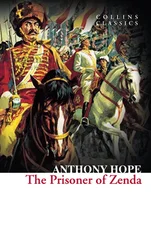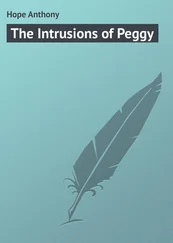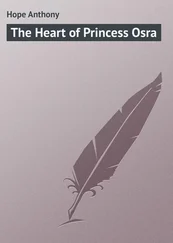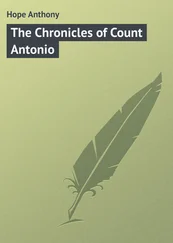
Michael knew of my coming, sure enough. I had not been in the house an hour, when an imposing Embassy arrived from him. He did not quite reach the impudence of sending my would-be assassins, but he sent the other three of his famous Six – the three Ruritanian gentlemen – Lauengram, Krafstein, and Rupert Hentzau. A fine, strapping trio they were, splendidly horsed and admirably equipped. Young Rupert, who looked a dare-devil, and could not have been more than twenty-two or twenty-three, took the lead, and made us the neatest speech, wherein my devoted subject and loving brother Michael of Strelsau, prayed me to pardon him for not paying his addresses in person, and, further, for not putting his Castle at my disposal; the reason for both of these apparent derelictions being that he and several of his servants lay sick of scarlet fever, and were in a very sad, and also a very infectious state. So declared young Rupert with an insolent smile on his curling upper lip and a toss of his thick hair – he was a handsome villain, and the gossip ran that many a lady had troubled her heart for him already.
“If my brother has scarlet fever (если у моего брата скарлатина),” said I, “he is nearer my complexion than he is wont to be, my lord (то цветом лица он теперь больше походит на меня, чем когда бы то ни было, милорд; near – близкий; сходный; wont – имеющий обыкновение ). I trust he does not suffer (я надеюсь, он не /сильно/ страдает; to trust – доверять, верить; полагать, надеяться )?”
“He is able to attend to his affairs, sire (он в состоянии справляться со своими делами, сир; to attend – посещать, присутствовать; уделять внимание ).”
“I hope all beneath your roof are not sick (надеюсь, не все там у вас: «под вашей крышей» больны). What of my good friends, De Gautet, Bersonin, and Detchard (что с моими добрыми друзьями – Де Готе, Берзонином и Дэтчардом)? I heard the last had suffered a hurt (я слышал, последний получил ранение; to suffer – страдать, претерпевать ).”
Lauengram and Krafstein looked glum and uneasy, but young Rupert’s smile grew broader (Лауэнграм и Крафштайн взглянули угрюмо и беспокойно, но улыбка юного Руперта стала шире; to grow ).
“He hopes soon to find a medicine for it, sire,” he answered (он надеется вскоре найти для нее лекарство, сир, – отвечал он).
And I burst out laughing, for I knew what medicine Detchard longed for – it is called Revenge (и я рассмеялся, поскольку знал, какого лекарства жаждет Дэтчард – оно зовется местью).
“You will dine with us, gentlemen?” I asked (вы с нами пообедаете, джентльмены? – спросил я).
Young Rupert was profuse in apologies (юный Руперт рассыпался: «был обилен» в извинениях). They had urgent duties at the Castle (у них были неотложные обязанности = дела в замке).
“Then,” said I, with a wave of my hand, “to our next meeting, gentlemen (тогда, – сказал я, помахав рукой, – до нашей следующей встречи, джентльмены). May it make us better acquainted (когда мы сможем получше познакомиться).”

“If my brother has scarlet fever,” said I, “he is nearer my complexion than he is wont to be, my lord. I trust he does not suffer?”
“He is able to attend to his affairs, sire.”
“I hope all beneath your roof are not sick. What of my good friends, De Gautet, Bersonin, and Detchard? I heard the last had suffered a hurt.”
Lauengram and Krafstein looked glum and uneasy, but young Rupert’s smile grew broader.
“He hopes soon to find a medicine for it, sire,” he answered.
And I burst out laughing, for I knew what medicine Detchard longed for – it is called Revenge.
“You will dine with us, gentlemen?” I asked.
Young Rupert was profuse in apologies. They had urgent duties at the Castle.
“Then,” said I, with a wave of my hand, “to our next meeting, gentlemen. May it make us better acquainted.”
“We will pray your Majesty for an early opportunity,” quoth Rupert airily (мы будем просить ваше величество о скорейшей возможности /встретиться/, – откликнулся Руперт весело; to quethen – сказать, промолвить / устар., поэт. / ; airily – воздушно, легко; беззаботно; early – ранний; скорейший, ожидаемый в ближайшем будущем ); and he strode past Sapt with such jeering scorn on his face (и проскакал мимо Сэпта с такой презрительной усмешкой на лице; to stride ) that I saw the old fellow clench his fist and scowl black as night (что я заметил, как старик сжал кулак и стал мрачнее тучи: «черным как ночь»; to scowl – хмуриться, мрачнеть ).
For my part, if a man must needs be a knave (что до меня, то, если человеку непременно нужно быть подлецом), I would have him a debonair knave (я бы предпочел, чтобы это был веселый подлец; debonair – учтивый, вежливый; веселый, жизнерадостный ), and I liked Rupert Hentzau better than his long-faced, close-eyed companions (и мне Руперт Хенцо нравился больше, нежели его мрачные и сонные товарищи; long-faced – с вытянутым лицом; с унылым видом; to close eyes – закрывать глаза, засыпать ). It makes your sin no worse, as I conceive (ваш грех не станет хуже от того, как я понимаю), to do it à la mode and stylishly (/если/ совершить его по-модному и стильно; à la mode – / устар. / модный, по последней моде ).
Now it was a curious thing that on this first night (это было забавно, что в первый же вечер; curious – любопытный; странный, курьезный ), instead of eating the excellent dinner my cooks had prepared for me (вместо того, чтобы съесть превосходный ужин, приготовленный для меня моими поварами), I must needs leave my gentlemen to eat it alone, under Sapt’s presiding care (мне непременно нужно было оставить своих людей есть его самим под заботливым присмотром Сэпта; to preside – председательствовать; осуществлять контроль, руководство; care – забота, попечение ), and ride myself with Fritz to the town of Zenda (а самому поехать с Фрицем в город Зенду) and a certain little inn that I knew of (и /посетить/ одну небольшую гостиницу, которая была мне знакома). There was little danger in the excursion (эта поездка была не слишком опасна); the evenings were long and light, and the road this side of Zenda well frequented (вечера стояли долгие и светлые, а дорога по эту сторону Зенды была довольно многолюдной; to frequent – часто посещать ). So off we rode, with a groom behind us (итак, мы выехали, а за нами ехал конюх). I muffled myself up in a big cloak (я завернулся в широкий плащ; big – большой; широкий, высокий ).
Читать дальше
Конец ознакомительного отрывка
Купить книгу
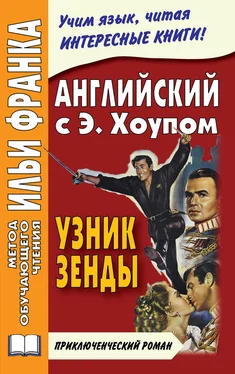


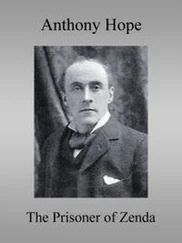
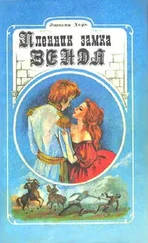
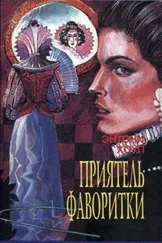


![Энтони Хоуп - Пленник Зенды. Месть Руперта [сборник]](/books/423551/entoni-houp-plennik-zendy-mest-ruperta-sbornik-thumb.webp)
